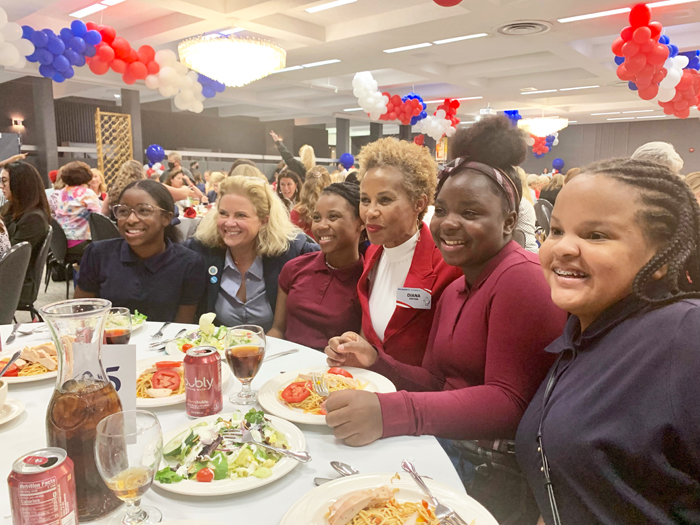
By Diana Patton
Special to The Truth
A 10-year old beautiful girl was recently shot and died after a drive-by shooting in Toledo Ohio. This disturbed me to my core, and I thought, “what if that were my baby girl.” I couldn’t stop thinking about her mom.
I also began to think about the sixth grade girls that I mentor at the Ella P. Stewart Academy for Girls and I wondered “how are they dealing with this?”
So, the University Talented Aspiring Women Leaders (TAWL) and I decided to bring it up as one of our Head Full of Dreams topics, and I’m so glad we did. The girls really opened up. One young girl was even related to the girl that was shot. My heart just swelled up!
According to the Substance Abuse and Mental Health Administration (SMHSA), “More than two thirds of children reported at least 1 traumatic event by age 16”
How can we help our young people cope after a traumatic event?
I remember being a 12-year-old girl – swirling in negative, unhealthy, and abusive spaces, really wanting to share my feelings with someone, but not knowing who I could trust. There weren’t many adults I could relate to.
Now, as a grown Black woman with several lived experiences with abuse and discrimination, as a social justice advocate, former civil rights attorney, and recent survivor of clinical depression and anxiety after George Floyd’s was murdered, I want to share the five ways I help young people cope after traumatic experiences … especially young Black girls because I’m always thinking about what it was like for me when I was that age.
I am confident these tips can help you:
- Be a Person They Can Trust. Don’t expect to get young people to trust you when you haven’t created a consistently loving relationship that’s based in trust.
- Create a Safe and Trusting Environment to Talk. When trying to connect, make sure the environment is soothing, comforting and in a place where you can openly share and feel safe. Talk about the issue, don’t dance around it. Ask open-ended questions.
- Learn the Art of Sharing Your Story to Create Engagement: Open up and be vulnerable. Share your story but don’t occupy the stage and be the center of attention. Share your story to be relatable.
- Listen and Resist Fixing or Judging What they Say: Get out of the “I have all the answers” mode and just listen. Do not say “oh, well, this is what you should do, or how you should think,” or, “according to my neuro-linguistic practitioner or therapy training, you are experiencing …” NO, please stop. Just listen!
- Be a Consistent Source of Hope to Yourself First, then Spread it. Show up for yourself first, and draw from your own well of HOPE. Then, you’ll have an aura of hope and it will be felt, right when you walk into a room. Focus on “Helping One PersonEveryday” – by Chris Winfield and Jen Gotlieb.
Be a blessing and do GOOD WORK!
Give back.
Serve your community.
Love unconditionally!
For more inspiration, encouragement and tips to help professional women overcome challenges, adversities and trauma, to activate their voice, and advocate for themselves, for others, and for diversity, equity and inclusion, connect with Diana!
Contact Diana Patton at diana@dianarpatton.com
